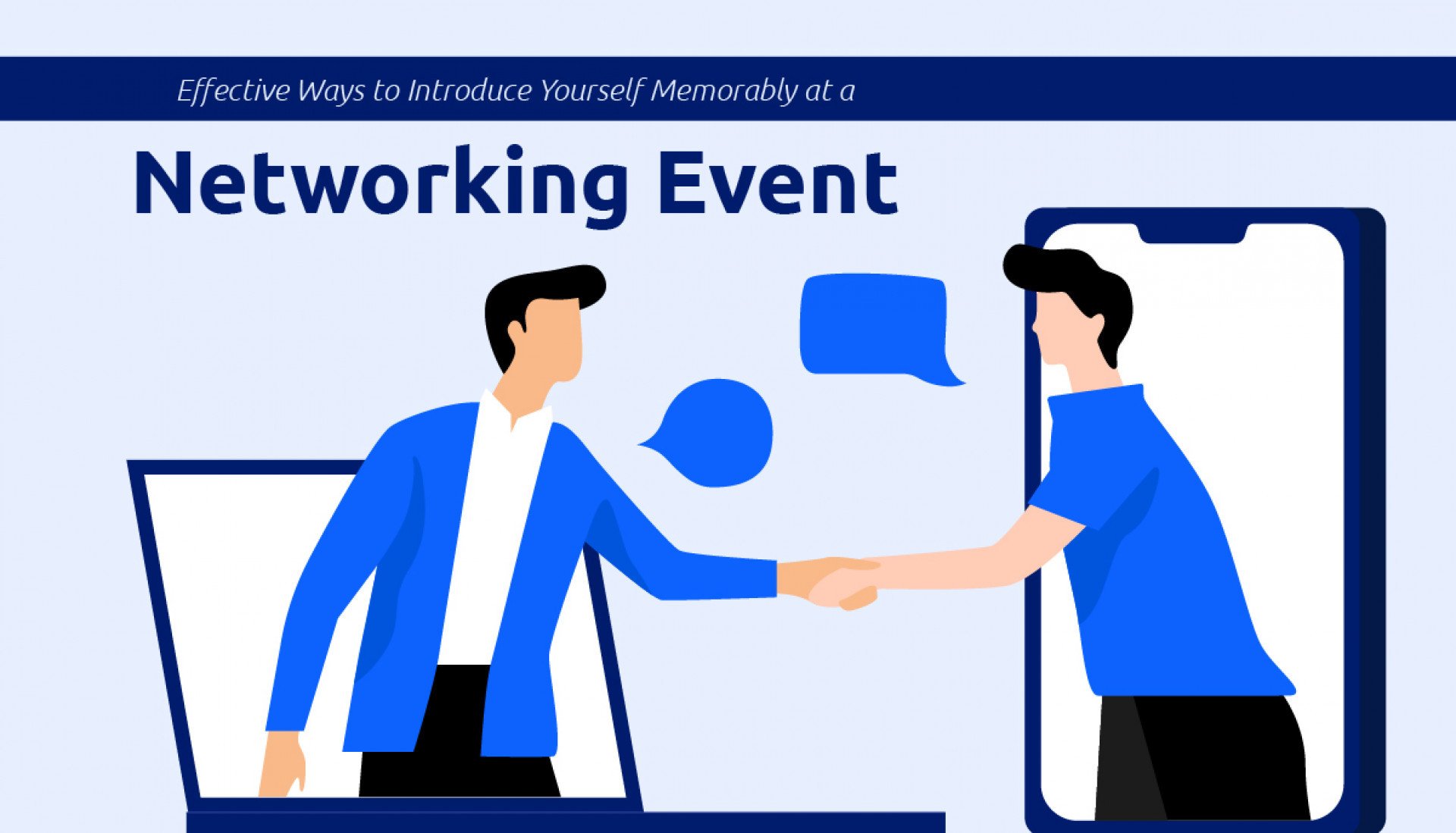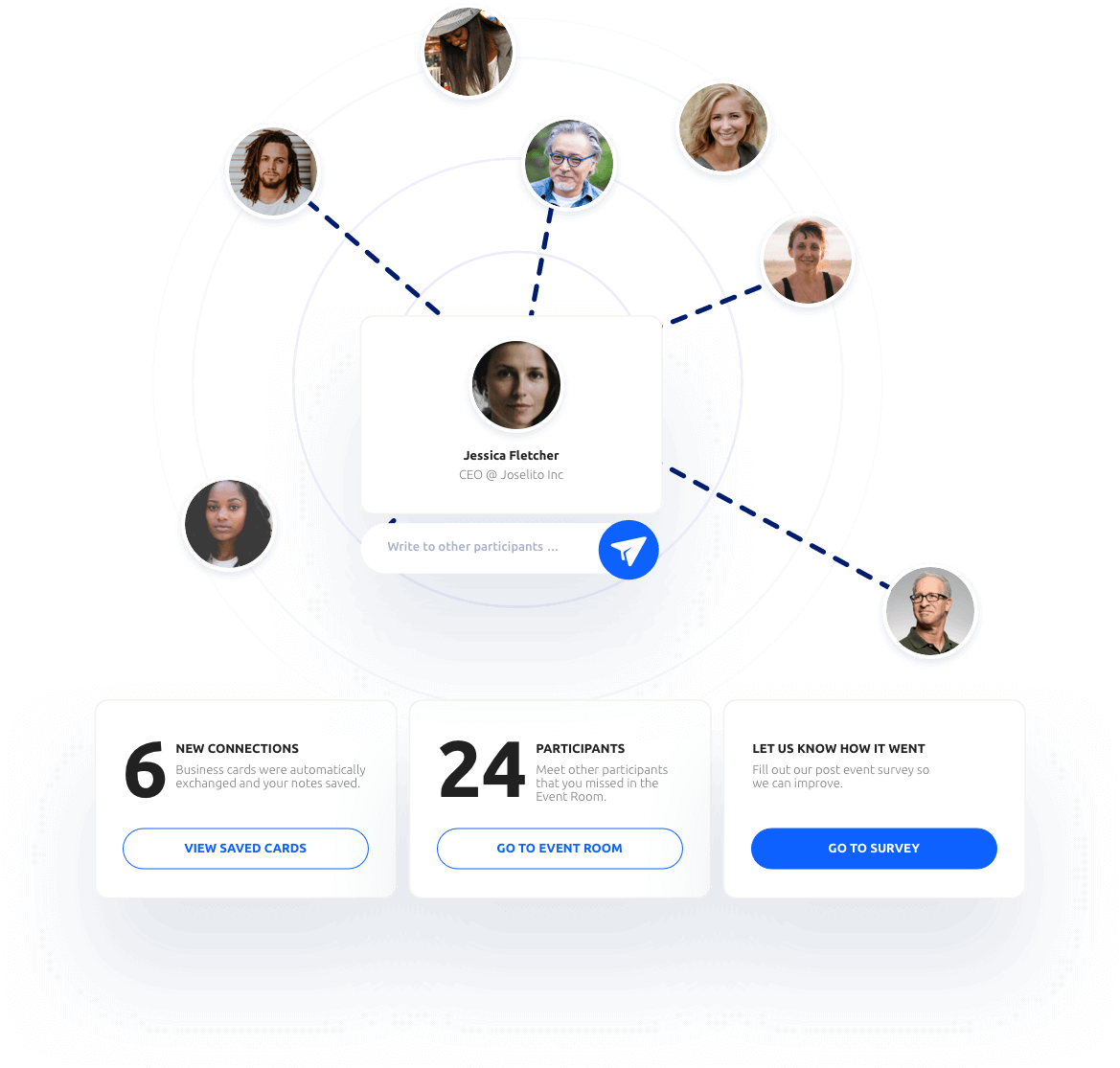
As you grow your organization or advance your career, you will meet new people with whom you can create and share mutually beneficial relationships.
Learning how to introduce yourself in a business setting has many advantages. It shows your ability to confidently connect with others and present yourself appropriately while making a good first impression.
In this article, we will guide you on how to introduce yourself at a networking event to get people to remember you successfully. Let’s get started.
Quick Reads
- Introduce yourself in a personal statement
- Use nonverbal communication
- Pay attention to your body language
- Talk about what you are passionate about
- Learn more about the other person
- Ask more questions
- Share your brand story
1. Introduce yourself with a personal statement
A personal statement is an account of your skills, interests, and goals you can prepare before attending a business networking event.
The best personal statements get to the point quickly. Therefore, a one-minute speech about yourself can communicate your enthusiasm to be seen and genuinely connect with people at an event.
This approach can excite the interest of someone when asked: “Tell me more about you.” Moreover, you can provide a brief and compelling answer to the question: “What do you bring to the table in a connection?”
Start a personal statement with a short sentence that captures your reason for meeting new people. Follow it with your first and last name, your organization, and some important details about yourself.
Keep it brief by making sure that it’s shorter than the usual elevator pitch. Giving more information about your job title or business can be done at a later time.
As you engage more in the conversation, think of something that might help your new contacts remember you or get them interested in communicating more with you.
It could be something you’re passionate about or your ideas in the industry. Be prepared to expound the topic further, as it could be their reason to meet you again soon.
2. Use nonverbal communication
Nonverbal communication is of the utmost importance when mingling with people at a professional networking event.
It includes implicit messages expressed through facial expression, eye contact, tone of voice, gestures, and body language.
When done right, it can reinforce what you say in words. For example, you nod your head to show that you agree with what the other person just said.
However, you don’t have to put your feelings into words all the time. It’s possible to communicate your emotional state through nonverbal cues effectively.
For instance, people may ask how you feel when you’re in networking groups. By looking down, you can express your sadness or disappointment.
On the other hand, smiling or nodding can be a useful way of giving feedback to others. Both can signal that you are listening as they speak or that you agree with their insights.
If you want to show that you intend to speak, you can use hand gestures and some body movements. You may communicate modestly in this way but can effectively get your message across.
3. Pay attention to your body language
Body language is part of one’s personal brand when creating and maintaining a professional network. Within the first few minutes of seeing you, people tend to evaluate your body movements.
Working on your body language is needed to stay composed in a professional manner during introductions.
For example, when you approach another business leader, maintain eye contact and make sure your handshake is firm. It exhibits confidence and signals your interest to keep the conversation going.
What’s more, you can demonstrate confidence by speaking in a clear and audible voice.
During your interactions, relax your shoulders and open your arms by your side for body language to appear naturally. If you are seated, be courteous and stand to greet someone who enters the room.
4. Talk about what you are passionate about
Passion plays a key role in success at work as it helps you reach your highest potential. It stems from caring deeply about what you contribute to the organization and being motivated by your purpose.
We advise you to talk about why you’re passionate about work rather than focusing too much on your job title during networking.
To put it simply, you can reflect on the tasks that have captured your curiosity or stirred your imagination. Talk about the projects that have been meaningful and fulfilling to you.
Do this by sharing your reasons for getting into the field, career, or position you are currently in.
Connecting on a personal level can build better relationships by giving other people a clear idea of what you do and why you do it.
5. Learn more about the other person
Being open to others means you’re willing to exchange ideas, learn from them, and form a strong bond.
When you refrain from being too guarded, you can expose yourself to some of the most significant benefits of a connection, like gaining new ideas, strategies, and techniques for growing an organization.
Once you’ve introduced yourself, throw out a question about the other person right away. You can start by asking about the nature of their business, location, or aspect of their jobs they find most interesting.
When you show interest in getting to know others better, both personally and professionally, you demonstrate sincerity in making genuine relationships.
Building meaningful relationships requires work and commitment on your part. Due to the COVID-19 pandemic, most people have transitioned to online meetings and even online networking to connect with each other and stay in touch.
If you are interested in using a virtual platform for your networking event, check out our Speed Networking solution.
Our full-suite networking platform for professionals is recommended to anyone who is interested in exchanging ideas in an event room, joining a community hub, or participating in a meaningful one-on-one chat.

Since networking is also about growing your contacts, the ability to exchange digital business cards lets you swap contact information quickly as you expand your network.
What’s more, it lets you gain administrator privileges, which allows you to define the session length, manage user roles and permissions, and moderate the flow of communication, among others.
6. Ask more questions

If you want to reach out to new people but still couldn't find the best way, asking questions can help you. It's an easy way to break the ice with another person as it signals them to do the talking.
Business leaders can understand client needs by asking questions. Moreover, smart thinkers continue to ask questions to improve knowledge, gain deeper insights, and elicit others' interests.
When you're at a networking event, ask how the person knows the organizers or the host.
These one-liner questions can help you begin a conversation:
- What was the goal of your organization?
- How did you get your business concept?
- Where are your offices?
- How many employees are in your company?
- What products and solutions do you offer?
- How do you effectively advertise them?
- How do you market your company?
Share your brand story
A brand story is a close-knit narrative that acts as the core value of your company.
A great-sounding one tells others about your importance in the industry. It can clearly explain why the market interacts with you.
Furthermore, people can become more eager to engage with you when the marketing storytelling is done well.
We advise you to attend a networking event not only to pitch your organization and products. But instead, focus more on telling the story of your brand and building meaningful relationships.
Great storytelling lets you effectively communicate your message and connect with people on a human level. Plus, it’s more likely people will remember you and the organization you represent when you use this approach.
Come up with an interesting and relatable brand story. It should be fully connected to the company’s mission, is of valuable importance to consumers, and can leave an emotional impact on the audience for it to be great.
Conclusion
We have just covered the importance of a professional self-introduction during a networking event.
If you want to introduce yourself in the best possible way, stating a personal statement that resonates with who you are is a great way to start.
Other helpful tips that we have provided can also easily engage others as you make your introduction and get their full attention for them to remember you.
If you are considering hosting an online networking event, we recommend that you book a demo of our Speed Networking tools. We would be more than happy to be with you and take steps to successful event execution.



